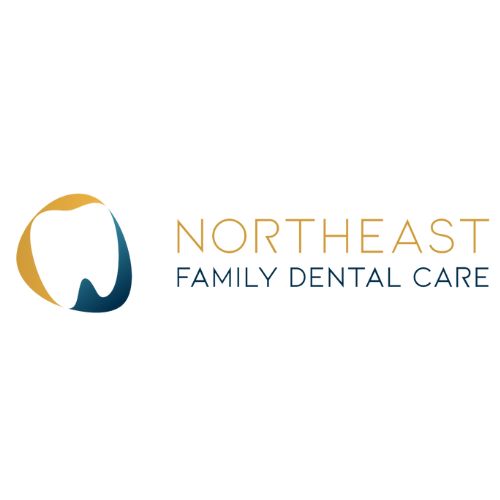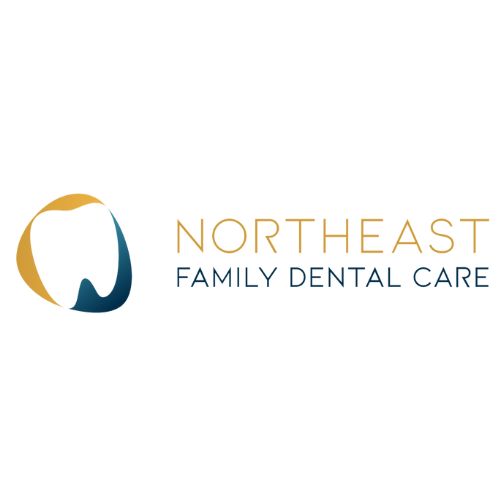How to Alleviate Dental Anxiety and Fear of the Dentist

Are you one of those people who break out in a cold sweat at the mere mention of the dentist? Or do you find yourself conveniently "forgetting" your dental appointments year after year? If so, you're not alone. Dental anxiety and fear are incredibly common, affecting millions of people worldwide. But here's the good news – there are plenty of ways to alleviate this anxiety and take control of your oral health! In this blog post, we'll explore the causes of dental anxiety, its impact on oral health, and most importantly, techniques to help you overcome that fear. So grab a cupper and get ready to put those dental fears behind you!
Understanding Dental Anxiety and Fear
Dental anxiety, also known as dental phobia, is a common condition that affects individuals of all ages. It is characterized by feelings of fear, apprehension, or stress surrounding dental visits and procedures. While some level of nervousness before a dental appointment is normal, dental anxiety goes beyond that.
The exact cause of dental anxiety can vary from person to person. For some, it may stem from a previous traumatic experience at the dentist's office. Others may develop anxiety due to the fear of pain or discomfort during treatments. Some people may even feel anxious about the lack of control they have while sitting in the dentist's chair.
Regardless of its root causes, dental anxiety can have significant effects on oral health. Many individuals with severe dental phobia avoid regular check-ups and necessary treatments altogether. This avoidance can lead to untreated cavities, gum disease, and other oral health issues.
Fortunately, there are techniques available to help alleviate dental anxiety so you can prioritize your oral health without unnecessary fear or stress. In the following sections, we will explore these techniques in greater detail and provide tips for finding a supportive dentist who understands your concerns.
Common Causes of Dental Anxiety
For many people, the thought of going to the dentist can be anxiety-inducing. But have you ever wondered what causes dental anxiety in the first place? Understanding these common triggers can help us address and alleviate our fears.
One significant cause is a past negative experience at the dentist. A painful or traumatic encounter can leave lasting emotional scars, making future visits feel daunting. Additionally, fear of needles or injections is another common trigger for dental anxiety. The idea of having sharp objects near their mouths can make even the bravest individuals anxious.
Another cause is a fear of loss of control. Sitting back in that chair with your mouth wide open leaves you vulnerable and dependent on someone else's expertise. This feeling of helplessness can intensify feelings of unease.
Furthermore, some people may have a general fear or phobia related to medical environments or procedures, known as "white coat syndrome." These individuals may experience heightened anxiety before any medical appointment, including visits to the dentist.
Societal stigma and embarrassment about oral health issues contribute to dental anxiety for some people. The fear of being judged for neglecting their teeth adds an extra layer of stress and apprehension.
By understanding these common causes behind dental anxiety, we are better equipped to address them head-on and find strategies that work specifically for our individual needs
The Impact of Dental Anxiety on Oral Health
When it comes to dental anxiety, the impact on oral health can be significant. Many people who experience dental fear or anxiety may avoid going to the dentist altogether, leading to a neglect of their oral health. This avoidance can result in various issues that worsen over time.
One common consequence of dental anxiety is poor oral hygiene. Individuals with dental fear may find it difficult to maintain regular brushing and flossing habits due to their discomfort with anything related to dentistry. As a result, plaque buildup and tooth decay become more likely.
Additionally, untreated dental problems can escalate rapidly if left unaddressed. Minor issues such as cavities or gum disease can progress into more severe conditions that require extensive treatment. This not only leads to increased pain and discomfort but also higher costs for necessary procedures.
Furthermore, individuals with dental anxiety often delay seeking professional help until they are in extreme pain or experiencing an emergency situation. By this point, the damage done may be irreversible, resulting in tooth loss or other serious complications.
Dental anxiety not only affects a person's emotional well-being but also has tangible consequences for their oral health. It is crucial for individuals struggling with dental fear or anxiety to address these concerns and seek support from understanding professionals who specialize in alleviating these anxieties while providing quality care tailored to each patient's needs
Techniques to Alleviate Dental Anxiety
When it comes to alleviating dental anxiety, there are several techniques that can help you feel more at ease during your visit to the dentist. One effective technique is deep breathing. Taking slow, deep breaths can help calm your nervous system and reduce feelings of anxiety.
Another technique is visualization. Close your eyes and imagine yourself in a peaceful and relaxing place while you're sitting in the dental chair. Picture yourself lying on a beach or walking through a serene forest – whatever helps you feel calm and relaxed.
Distraction is also an excellent technique for reducing dental anxiety. Bring along headphones and listen to soothing music or an audiobook during your appointment. This will divert your attention away from any anxious thoughts and create a more positive experience.
Communication with your dentist is crucial when it comes to alleviating anxiety. Be open about your fears and concerns so they can tailor their approach accordingly. Many dentists are trained in providing gentle care for anxious patients, using techniques such as numbing gel before injections or taking breaks when needed.
Additionally, practicing good oral hygiene at home can help alleviate anxiety by reducing the need for extensive dental treatments down the line. Regular brushing, flossing, and visits to the dentist for preventive check-ups will ensure that any potential issues are addressed early on.
By utilizing these techniques, you can take control of your dental anxiety and have a more positive experience at the dentist's office! Remember that finding a supportive dentist who understands your fears is essential too! So don't hesitate to reach out and find someone who will make you feel comfortable throughout the entire process
Sedation Dentistry Options
For many individuals, the thought of sitting in a dentist's chair can induce overwhelming feelings of anxiety and fear. However, thanks to advancements in modern dentistry, there are now sedation dentistry options available to help alleviate these fears and create a more comfortable dental experience.
One common method of dental sedation is oral sedation. This involves taking a prescribed medication before your appointment to help you relax and reduce any feelings of anxiety. The medication is typically taken about an hour before your scheduled treatment, allowing it enough time to take effect by the time you arrive at the dentist's office.
Another option for sedation dentistry is nitrous oxide, commonly known as laughing gas. Nitrous oxide is administered through a mask placed over your nose and provides a calming sensation while still allowing you to remain conscious during the procedure. It wears off quickly once the mask is removed, making it safe for patients to drive themselves home afterward.
In more severe cases of dental anxiety or for complex procedures, intravenous (IV) sedation may be recommended. IV sedation involves administering medication directly into your bloodstream through an IV line, inducing a deep state of relaxation or even sleep throughout the entire procedure.
It's important to note that not all dentists offer every type of sedation option mentioned above. When seeking out a supportive dentist who understands dental anxiety and fear, be sure to inquire about their specific sedation offerings beforehand.
By exploring these different options with your dentist and finding one that suits your individual needs best, you can take control of your oral health without letting fear stand in the way! Remember that overcoming dental anxiety is possible with proactive steps toward finding compassionate care providers who prioritize patient comfort.
Tips for Finding a Supportive Dentist
When it comes to overcoming dental anxiety and fear, finding a supportive dentist can make all the difference. Here are some tips to help you find a dentist who understands your concerns and will work with you to alleviate your fears.
1. Ask for recommendations: Start by asking friends, family, or even your primary care physician for recommendations. Hearing positive experiences from people you trust can help ease your anxiety about finding a new dentist.
2. Research online: Take advantage of online resources such as review websites and dental practice websites to gather information about potential dentists in your area. Look for dentists who specialize in treating anxious patients or advertise themselves as being empathetic and understanding.
3. Schedule consultations: Before committing to a specific dentist, schedule consultations with a few different practices. This will give you an opportunity to meet the staff, ask questions about their approach to patient comfort, and get a feel for the overall atmosphere of the office.
4. Discuss your concerns openly: During these consultations, don't be afraid to discuss your anxieties and fears openly with the dentist or their staff members. A supportive dentist should listen attentively and provide reassurance that they will take steps to make you feel comfortable during treatments.
5. Inquire about sedation options: If necessary, inquire about sedation dentistry options that may be available at the practice. Sedation techniques such as nitrous oxide (laughing gas) or oral conscious sedation can greatly reduce anxiety levels during dental procedures.
6. Trust your instincts: Trust is crucial when choosing any healthcare provider – including dentists! If something doesn't feel right or if you don't have confidence in their ability to support you through your dental journey, it's okay to continue searching until you find someone who meets all of your needs.
Finding a supportive dentist takes time and effort but is well worth it when it comes improving both your oral health and overall well-being. Take control of your dental anxiety by seeking
It is crucial to acknowledge the impact that dental anxiety and fear can have on your oral health. By understanding the common causes of this fear and anxiety, you can begin to take steps towards alleviating them.
Remember, communication is key when it comes to finding a supportive dentist. Don't hesitate to express your concerns and fears so that they can customize your treatment plan accordingly. Look for dentists who specialize in treating anxious patients or offer sedation dentistry options.
Additionally, practicing relaxation techniques such as deep breathing exercises or listening to calming music can help reduce anxiety during dental visits. Keeping yourself informed about the procedures being performed and asking questions along the way will also empower you and alleviate any uncertainties.
By taking control of your oral health journey and addressing your fears head-on, you are not only improving your overall well-being but also setting a positive example for others who may be struggling with dental anxiety.
So don't let fear hold you back from achieving optimal oral health! Remember that there are solutions available, supportive professionals ready to assist you, and techniques at hand to help calm those nerves. Take charge today by seeking out a compassionate dentist who understands your needs, implementing relaxation techniques before appointments if necessary, and prioritizing regular dental care.
With determination, support, and proactive measures in place - overcoming dental anxiety is within reach! Start taking steps towards a healthier smile free from fear today!


